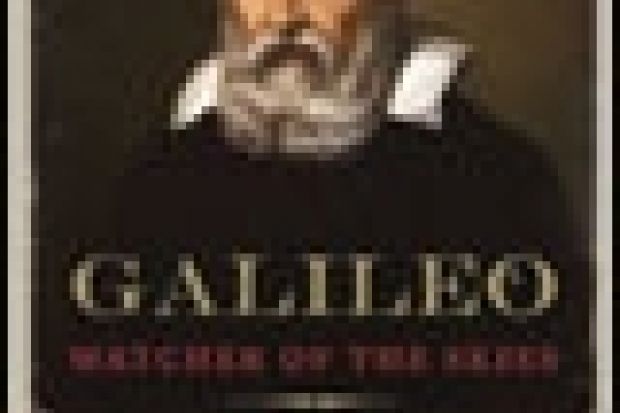Although it appears in the 400th year after the publication of Galileo's first telescopic treatise, David Wootton's intriguing portrait of that icon of early modern science acts as a corrective to the tendency to privilege the astronomer over the physicist, or to treat the first 46 years of his life as the slowest of starts and the miserable last nine as a free fall from glory. The arc of Galileo's life, as Wootton traces it, has a disconcerting symmetry: there are significant familial, fiscal and professional struggles from his birth in 1564 through to his arrival in the Veneto 28 years later, then a period of abundant intellectual discovery and prestige until 1614, and then 28 years of decline, cushioned by Medici support, until his death in 1642.
To insist so much upon the burdensome business of being Galileo does not, however, deprive this biography of great energy, forcefulness and wit. Among its many attractive traits is a commitment to the depiction of a consistent character, one whose intellectual preoccupations were steadily maintained in widely varying circumstances over the course of a life. Wootton's account shows how Galileo's very early studies of local motion were deployed in his Copernican programme; how an extraordinary faith in theoretical models tempered his dependence on empirical observation (or at least required something like a diagram as a midpoint between the invisible idealised abstraction and the actual uncooperative object); and how an unusual resistance to the idea of a providential cosmos bolstered his belief in an arrangement where other laws, entirely indifferent to human needs, governed terrestrial position, movement and conditions.
Galileo: Watcher of the Skies also suggests much that has been hidden, or at least obscured, in earlier biographies. Wootton offers the attractive conjecture that John Donne met Galileo in Venice around 1605, emphasises Galileo's philological and methodological debts to William Gilbert, and speculates on how Galileo's lost treatise on miracles may relate to the doomed effort to mesh natural philosophy with scripture.
In his careful reading of familial and familiar letters, Wootton argues persuasively that Galileo had yet a third daughter, and elsewhere he discerns delicate allusions to a proposed tryst, repeatedly thwarted by slow mail, an inconvenient husband, meddling relatives and house arrest, but of interest to both parties for a decade.
An acknowledgement of the relative paucity of extant documents, of the active role Galileo's last student had in burnishing his legacy, and of the conjectural nature of biography, together with the willingness to pursue strong arguments, makes for a vivid and compelling portrait, but one perhaps not entirely convincing to all onlookers. Some may argue that Galileo's commitment to practical knowledge deserves more attention, or that the silent trials of the experimentalist or observer would have generated reams of waste paper but little in the way of finished texts, thus prompting Wootton to understate the role of empirical evidence.
Others may argue that the insistence on the belatedness of the Dialogue and the Discourses effectively evacuates those works of novelty, and treats the process of writing as little more than the assembly of the already known, or in the case of the former, the opportunity to repurpose material stolen from a rival. Such debates are, however, a matter of emphasis, and an excellent index of the sheer liveliness and force of a rich biographical portrait.
Wootton's presentation of Galileo's mother, Giulia Ammannati, is for this reader something of a stumbling block. The persistent suggestion is that her shrewish and manipulative nature rendered her son diffident and misanthropic, disposing him, moreover, to imagine idealised, friction-free local motion and a cosmic system with mutability assigned to remote regions where not the slightest provision had been made for man. Broadly speaking, mum's the word.
But is it? It is difficult to defend her, but harder by far to imagine that the lines of force were quite so direct, or that Galileo's attraction to an intellectual position for which there was, during much of his life, ambiguous empirical evidence, little company and fluctuating cultural prestige was so strongly governed by this dismal relationship.
It is as if he and his mother play out a predictable drama, one where she has been assigned the allegorical role of Impetus - at a point where the term still meant something like "assault" or "violence" - forever conditioning his natural movement and determining from the outset both how far and exactly where he would travel. It's a bit of a dumb show in an otherwise engaging, subtle and arresting story.
Galileo: Watcher of the Skies
By David Wootton. Yale University Press, 354pp, £25.00 ISBN 9780300125368. Published 5 October 2010.
Register to continue
Why register?
- Registration is free and only takes a moment
- Once registered, you can read 3 articles a month
- Sign up for our newsletter
Subscribe
Or subscribe for unlimited access to:
- Unlimited access to news, views, insights & reviews
- Digital editions
- Digital access to THE’s university and college rankings analysis
Already registered or a current subscriber? Login
